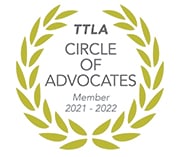Hearing loss is an under-recognized consequence of certain jobs. Moreover, loss of your hearing, in part or in full, can affect your life in virtually every way.
Aside from the frustration of not being able to hear and communicate in the same way, you will likely need medical treatment and therapy, and you could potentially need additional job training if the hearing loss affects your ability to work.
Here are some things to understand about Tennessee workers’ compensation and work-related hearing loss.
People generally don’t associate workers’ compensation and hearing loss, but the reality is that hearing damage is the basis for many workers’ comp claims in Tennessee. You don’t necessarily have to work in a loud environment to suffer job-related hearing damage — the constant, lower-volume noise in your work environment may still result in hearing loss.
Hearing damage may happen suddenly or gradually over time. In fact, noise isn’t the only cause of hearing damage. Exposure to certain chemicals can also cause hearing damage.
If you are living with occupational hearing loss, you may be entitled to workers’ compensation, which covers medical bills and/or lost wages. In more serious cases, workers’ compensation may cover rehabilitation and occupational training.
However, in 2014, Tennessee’s workers’ compensation law was drastically overhauled, and the process for bringing a claimed changed significantly. To ensure that your claim or your appeal of a denied claim is handled properly, talk to an experienced Tennessee workers’ comp attorney.
What can employers and workers do to prevent hearing loss?
According to the Centers for Disease Control and Prevention, each year 22 million workers in the United States are exposed to hazardous noise levels on the job.
Still, job-related hearing loss is preventable with the proper hearing protection equipment. Just as important are engineering and administrative controls. By that we mean: (1) engineering protections to minimize noise levels in the workplace and (2) ensuring that workers are working in safe areas with minimal risk of hearing damage.














